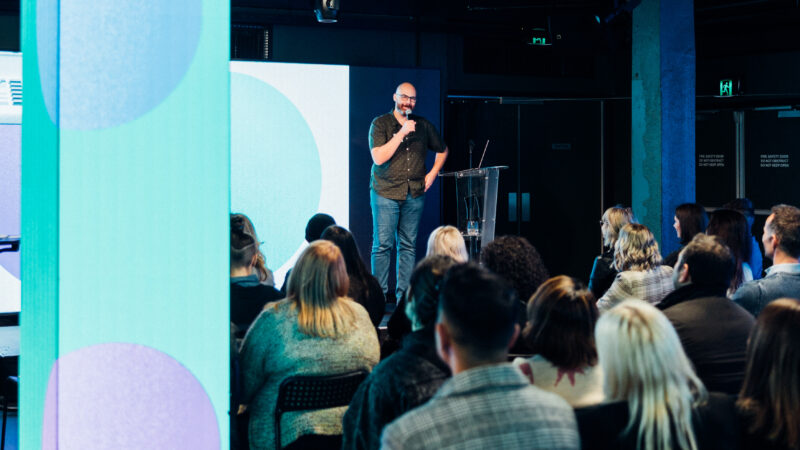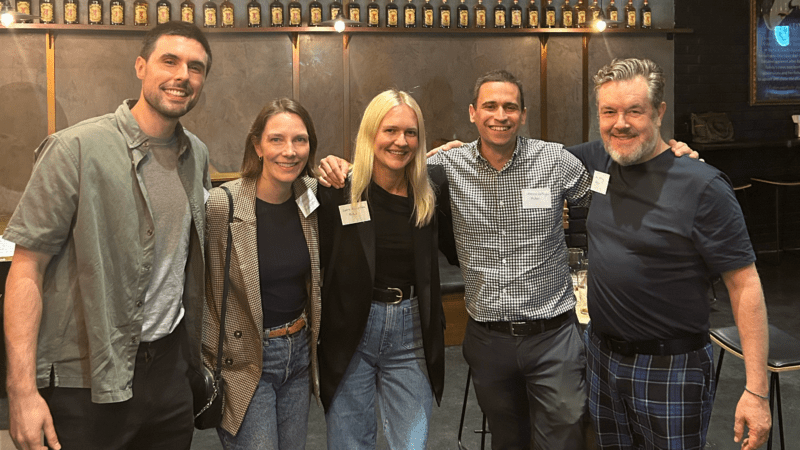I’d hazard a guess that the vast majority of businesses and organisations in Australia want to do the right thing – by their employees, their clients, their community and their planet. They firmly believe they are ethical in their business and social dealings.
However, the Governance Institute of Australia’s Annual Ethics Index finds a disconnect between what consumers want (highly ethical behaviour) and what they think they are receiving (improving but still below average ethical performance). Fire services, ambulances and charities rate highest in ethical service and politicians, corporates and banking rank low. Real estate firms rank lowest.
One of the reasons this performance hasn’t budged much is that until 2007 there was no international benchmark for what was an ethical business. B Corp changed all that.
The Certified B Corporation Movement was started in the US by two individuals, Jay Coen Gilbert and Bart Houlahan, who had co-founded AND1, a basketball footwear and clothing company.
AND1 was ahead of its time offering parental leave benefits, shared ownership of the company, 5% of profit donated back to charity each year, and audits of overseas suppliers to ensure worker health and safety. In line with their Silicon Valley cousins, they offered perks such as on-site basketball courts and free yoga classes.
But when they sold their company in 2005 they were devastated to learn that all of these benefits were stripped away by the new owners. They decided, along with a friend from a private equity firm, Andrew Kassoy, to start a global movement that would use business for good and build-in ethical legacy structures that persist after sales and mergers.
B Corp’s growth has been explosive – from less than a 100 in 2007 there were 8,254 certified B Corporations across 162 industries in 96 countries in February this year with 650 in Australia and New Zealand.
Why do you become a B Corp?
The majority of B Corp businesses I have spoken to were practising ethical business behaviour long before they decided to apply for certification. They offered flexible working conditions and other benefits to their staff, supported their local community, chose suppliers based on social and environmental credentials and sought out customers that shared their ethos.
For them, being a B Corp provides a third party independent endorsement of what they are doing right which is just as important as an ISO standard or an industry award. It is no longer up to you to prove that you are doing the right thing by your employees, customers and community – it is an internationally recognised qualification that is irrefutable. In this new era of increased ESG (environmental, social and governance) reporting by Boards, a B Corp provides a disciplined framework for good behaviour.
How do you become a B Corp?
The process of certification is certainly no walk in the park. It starts with a B Impact Assessment, a self driven questionnaire in five key areas of business: governance, workers, community, environment and customers. There is a sixth questionnaire where you are required to disclose your work in what are called controversial industries (tobacco, human rights, fossil fuels and so on), provide assurances that you and your suppliers don’t support modern slavery and don’t have a record of fraud, bribery or corruption, among other things.
Initially the Impact Assessment can seem like an easy Year 9 multiple choice. But for each of the 238 questions, your answer has to be supported by policies, systems and procedures, examples and case studies. It is a legal process run by B Lab auditors in each country who are trained to ask the difficult questions. You can’t just make it up.
To achieve certification applicants must achieve a minimum of 80 points and many businesses don’t make the cut. For those who do get through the first time, scores are often in the 80s and 90s, with recommendations for improvement from B Lab.
When our agency achieved certification in 2021 it felt like a positive pat on the back for nearly 30 years of doing the right thing. But we knew we couldn’t stop there. Now undertaking our next three year round of certification we can look back on positive action in areas such as reconciliation (we completed a Reconciliation Action Plan last year), environment (we achieved Carbon Neutral through Climate Active in 2021), worker benefits (free health checks, vaccinations, mental health counselling and more advanced diversity policies) and community (volunteering, mentoring and pro bono work). We’d like to go from our score of 106 to the 120s over the next three years by developing even more “for good” policies in consultation with our in-house B Corp committee.

Is B Corp greenwashing?
One of the risks to a movement such as B Corp is maintaining credibility. There will always be tall poppy loppers and cynics who are intent on finding weaknesses in ethical actions by what they unkindly term “virtue signalling” businesses. But refreshingly, the harshest critics of the Movement are B Corps themselves. Having done the hard yards and turned away unethical clients and suppliers they are watchful of other B Corps who are not playing the game.
A recent February 2024 Consultancy UK online article, called out some of the transgressions.
“In 2022 a group of B Corp-certified coffee companies alongside Portland, Oregon-based non-profit Fair World Project, wrote an open letter to the organisation, in the wake of Nestlé-owned coffee company Nespresso receiving B Corp designation. The letter pointed to Nespresso’s “abysmal track record on human rights” and “extractive business model”, asking for stricter standards across B Lab Global.
“Later that same year, B Lab’s processes came under fire again, relating to then-B Corp Brewdog. An open letter from workers at the British brewery cited a “culture of fear” at the company, in which workers were bullied and “treated like objects” – even though Brewdog has achieved its highest scores in the worker-assessment areas during its B Corp evaluation. The fallout saw Brewdog lose its certification, but the damage to the B Lab brand had already been done.
“On top of this, in 2023, a number of B Corp marketing agencies began calling for B Lab to take a stance on Shell’s $200 million media review. Early in 2024, B Lab finally made headlines when it announced it would launch a formal investigation into the B Corp status of four Havas media agencies following the company’s controversial multi-million-dollar account with fossil-fuel giant Shell.”
So when you decide to be B Corp you understand you will need to make some tough decisions. Our company has used B Corp as a “conscience”. If a potential client seems to be a poor fit with our ethics and our staff culture we undertake additional research. Usually our instincts are proven correct and we politely decline the brief… even though we may be losing potential income.
Is the B Corp movement just for greenies?
There is no doubt that B Corps operate at the progressive end of the business spectrum committed to making a positive difference, but we’re not zealots.
Like all businesses we don’t shrink from the responsibility of making a profit so we can provide security for our employees and their families.
Empathetic, collaborative customer service is an essential part of being a B Corp and we don’t refrain from challenging decisions if it means improving the quality of our products and services.
Being a B Corp provides a valuable benchmarking tool, enabling us to see what other businesses are doing and emulating their creative and progressive policies.
We are encouraged by the stories of leading B Corp businesses that are torchbearers for the movement: these include Patagonia Outdoor Clothing and Gear, Aesop Skin and Body Care, Beyond Bank, People First bank, Young Henry’s and Heaps Normal beers and Who Gives a Crap toilet paper which donates a percentage of sales to building toilets in third world countries. We also work collaboratively with B Corps in South Australia including Good Empire, GOGO events, Pinnacle Commercial Interiors, Human.Kind Studios and Social Change HQ.
These businesses don’t just make themselves and us feel good…they make the world good.
Are B Corps employers of choice?
Perhaps the most important outcome of being a B Corp is staff loyalty. Millennials and the various Gen acronyms now represent a higher percentage of the workforce than Baby Boomers and endless research shows that they are motivated by ethical behaviours and environmental action. Acknowledging this and encouraging activism has made our company a more dynamic and interesting place to work and we attract ethical, positive clients.

The bottom line?
This is not a get rich scheme for the founders, unless I’m missing something. Annual fees for small to medium businesses range from $2000 to $5000, depending on numbers of staff and revenue, which seems exceptional when B Corp has to fund B Lab offices all over the world, manage three yearly certifications and hold networking workshops and events.
But there is a time cost. To give this the gravitas it deserves, as Executive Chair of Fuller, I committed to managing the first certification with the essential support of our Agency Manager, our administration team and a B Corp committee. For B Corp to be treated seriously by staff and clients it should be driven from the top of the organisation with the involvement of staff.
At the risk of sounding evangelised, B Corp is not the second coming, nor is it a Kumbaya collective. It is a serious certification that gives you the imprimatur to keep doing what you’re doing for good.
It also challenges you to always do better in the eyes of your customers and staff.
Fuller was the first marketing agency in Australia to simultaneously achieve both B Corp certification and Carbon Neutral status through Climate Active in 2021. If you’d like to consider certification we’d be happy to talk.